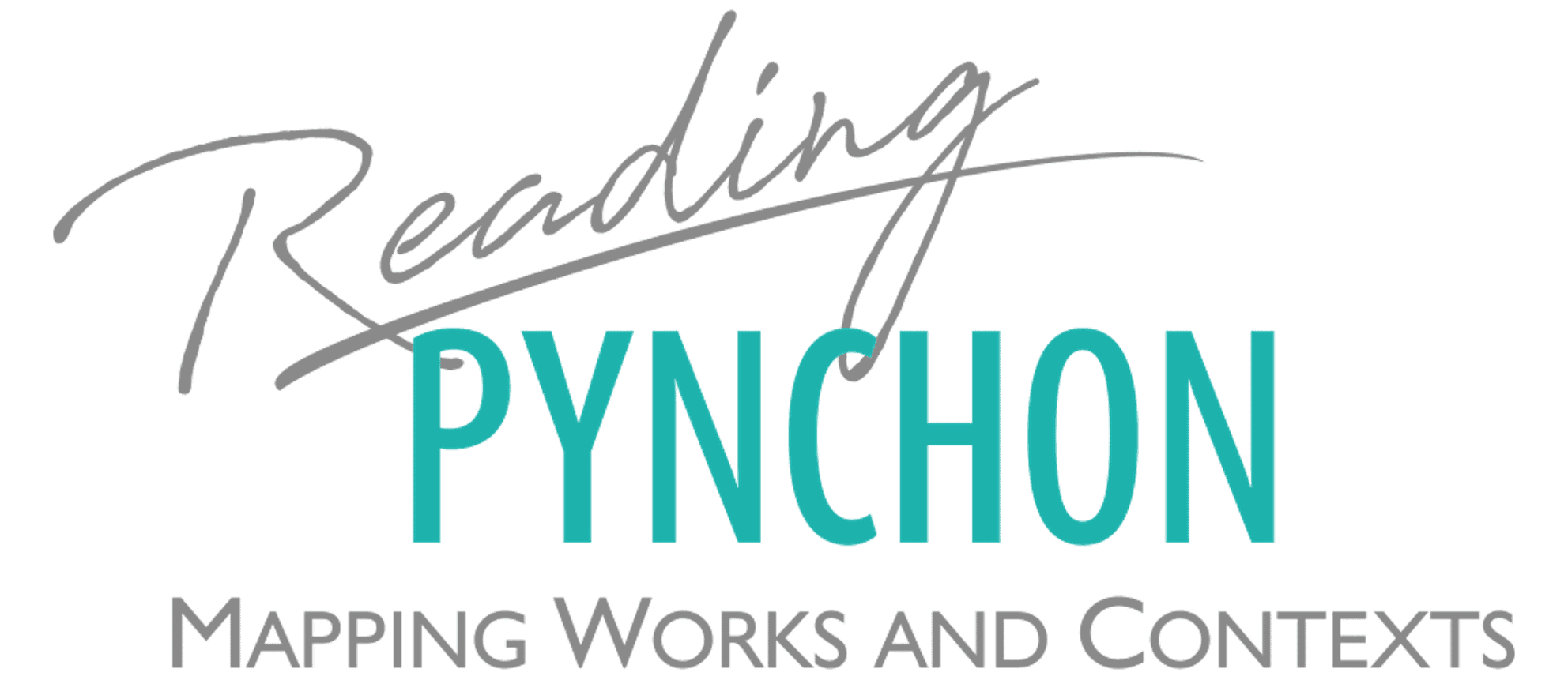Why Pynchon?
Why do I write about Thomas Pynchon’s works?
Well, I do consider his novels worth reading and my experiences with them worth sharing with anyone interested.
Reading through his works I do cultivate a notion, an impulse and intuition: he is writing about things that matter – not only to US Americans but also to the rest of the world. Pynchon as a writer is as much a witness to his times as a good songwriter’s lyrics are concerned with contemporary issues.
Among manifold aspects of life and art, his novels are about hopes for a better future and about the reasons why they have not been fulfilled. Reading Pynchon, I want to understand the legacy of a generation that was fighting and hoping for better lives.
Of, course, Pynchon is an American writer and novelist, a US-American writer to be precise. The problems, issues, and topics his stories and novels deal with, however, are also of a universal nature. As an artist he is also concerned with the conditio humana in the 20th and 21st century. Therefore I publish my thoughts in English hoping to reach more people on this our globe.
Some Thoughts on Method
Most of the times when I read texts on Pynchon’s texts, I am deeply dissatisfied since they seem to be more about the writer and current trends in the Departments of Literature than about Pynchon’s novels, their characters and storylines. Thus, my aim is to move to and fro – from detailed interpretation of his works to abstract ideas, meta-communication on Pynchon’s texts and vice versa.
So much writing on Pynchon … I decided not to work my way through it, without, however, totally ignoring secondary writing, taking literature on contexts, however, more into account than on the novels themselves. In addition, as you will see, it is all about asking the right questions – Pynchon’s texts will “give answers” in that process of “reading” then.
All in all, I want to point at what is being shown by Pynchon’s art – always being careful that the magic of the imaginary process of reading is not being destroyed on the way, to the contrary: I struggle to find a way for readers to deepen and enhance the experience of magic and more inherent in Pynchon’s works.
Questions and Maps
Pynchon’s works do not “make sense“ in the true sense of the word. We, as readers, you, might want to make sense based on the words, phrases, sentences and chapters. His texts, however, offer multiple possibilities, routes, but you will probably not come to an end. It is as if you come to a point from which you observe the text as a body offering diverse possibilities, paths, footpaths and highways to making sense, by the means of allusions, composition etc. We might also realize at some point that “making sense” is not the point at all.
Reading Pynchon is meant to help you with all that by providing “maps” that lead you through the jungle of Pynchon’s texts, that help you observe the text doing just what I said above: reaching that point of observation from which you watch the text come alive in your imagination, from which you watch thoughts and images wander to and fro.
Needless to say, there is more than a single map to be unfolded.
